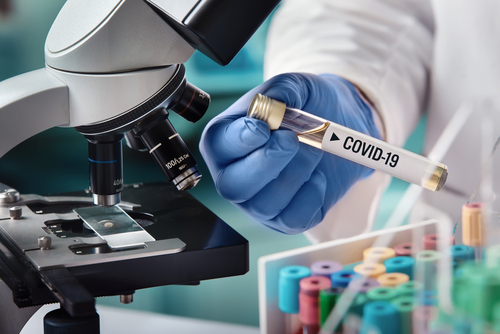
The National Institutes of Health (NIH) announced last week that it will award $248.7 million worth of contracts to seven biomedical diagnostic companies for new COVID-19 tests capable of increasing the number, type, and availability of tests by millions per week in short order.
With the need for testing growing — and expected to grow — by millions in the days ahead, the government seeks the increase as quickly as possible. The awards are being offered through the Rapid Acceleration of Diagnostics (RADx) initiative.
“RADx moved incredibly quickly to select promising technologies through its ‘shark tank’ approach, investing in technologies that could boost America’s best-in-the-world COVID-19 testing capacity by millions more tests per day,” HHS Secretary Alex Azar said. “These technologies will help deliver faster results from labs and more and more test results within minutes at the point of care, which is especially important for settings like schools and nursing homes.”
Between the seven, tests can be divided into two types: point of care tests and lab-based tests. The point of care tests include offerings by Mesa Biotech, Quidel, and Talis Biomedical. Both Mesa and Talis say their tests can provide results within 30 minutes, while Quidel’s could achieve the same within 15 minutes.
As to the lab tests, Ginkgo Bioworks, Helix OpCo, Fluidigm, and Mammoth BioSciences, Inc. have all been granted contracts. While each differs in approach, the results could yield hundreds of thousands of additional tests. Ginkgo and Helix both say they will scale up to produce 50,000 tests per day in September 2020 and 100,000 per day by year’s end. Fluidigm likewise claimed the capability to produce tens to hundreds of thousands of new tests per day this fall, while Mammoth claimed a multi-fold increase in testing capacity for commercial labs.
Each test uses different methods and formats to achieve their ends, from next-generation sequencing, CRISP, and integrated microfluidic chips, to platforms that offer nucleic acid and viral antigen tests, along with saliva testing. All companies involved have either received emergency use authorization from the U.S. Food and Drug Administration or have applications in the pipeline.
“The RADx initiative has enabled some of the nation’s most creative biomedical device inventors to ramp up development of their testing technologies at unprecedented speed,” NIH Director Francis Collins said. “The innovations selected to date represent the diverse types of promising technologies that will serve the nation’s testing needs.”




